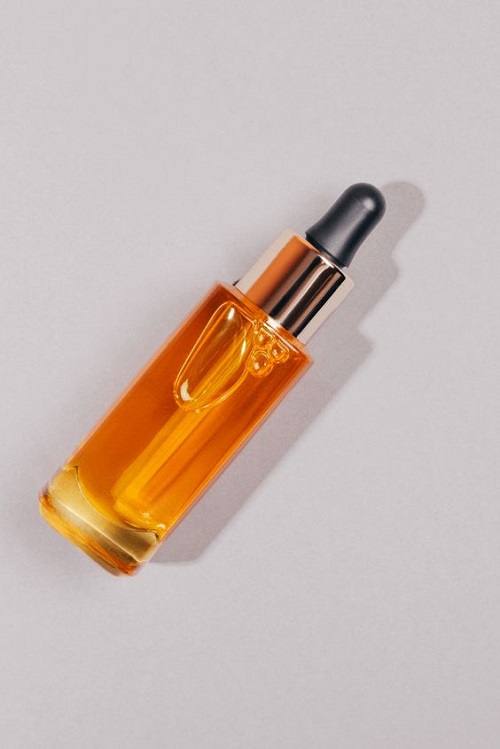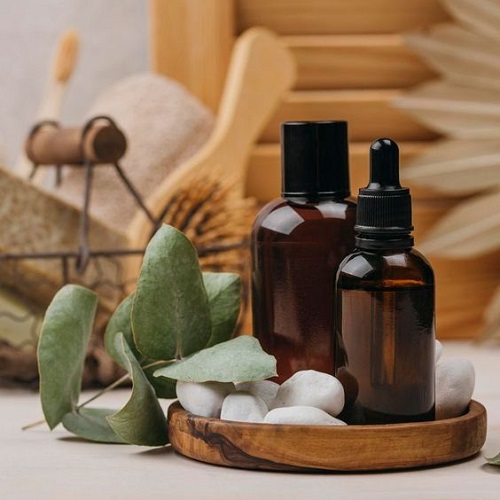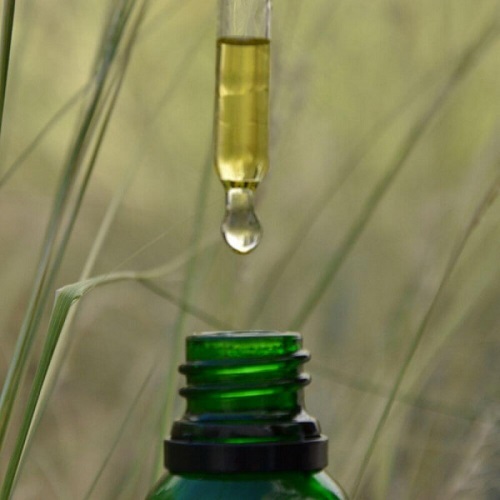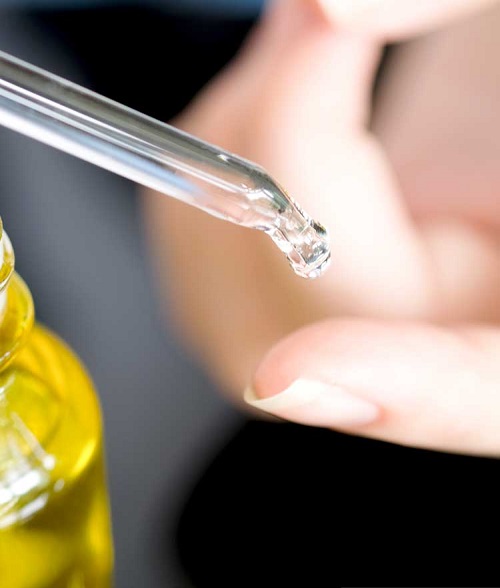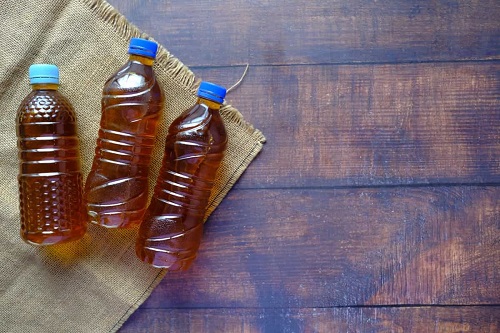Does Mineral Oil Go Bad? Or is it ever-lasting? Well, you’ll be surprised to learn the facts behind its shelf life!
Mineral oil is a versatile staple in our homes, tucked away in kitchen cabinets or bathroom shelves. Frequently, we find it in our daily routines as a gentle skin moisturizer or as a protector for wooden surfaces. However, a question that’s commonly overlooked is—Does Mineral Oil Expire? Let’s dig into the topic below!
Is Mineral Oil The Same As Castor Oil? Learn The Key Differences Here!
Chemical Composition Of Mineral Oil
Mineral oil’s tendency to go rancid largely depends on its chemical composition. It comes from distilling petroleum and is mostly a mix of various hydrocarbons—alkanes, cycloalkanes, and some aromatic hydrocarbons.
Alkanes help keep it stable, cycloalkanes are great for lubrication, and the aromatic hydrocarbons, though not as abundant, give it solvent qualities. There are also tiny amounts of sulfur and nitrogen, and depending on how thick or refined the oil is, you’ll find different compositions.
To boost qualities like resistance to oxidation and to control its thickness, manufacturers often add extra ingredients, which aren’t naturally part of mineral oil.
Does Mineral Oil Go Bad?
No, mineral oil does not go bad.
While mineral oil doesn’t really ‘expire’ in the usual way that organic oils do, thanks to its stable and inert nature, there’s something more to this. Unlike oils with organic compounds, it doesn’t have the elements that typically lead to microbial growth and spoilage. But it’s not immune to time.
Extensive exposure to heat, air, and sunlight can atill cause the oil to degrade, making it less effective as a lubricant or moisturizer. In places like factories, where dust and chemicals are common, this process can happen faster. While, there’s no definite mineral oil shelf life, but it’s wise to give it a once-over for any odd smells or looks, particularly if it’s been sitting on the shelf for a while.
Does Castor Oil Go Bad Over Time? Learn All The Essential Facts Here!
Signs of Mineral Oil Degradation
While mineral oil doesn’t spoil in the traditional sense, these key signs suggest its degradation, hence should be replaced:
- Change in Odor: Usually, mineral oil doesn’t have much of a smell. So, if you suddenly catch a whiff of something off, it’s a clear sign that your oil may have had some alterations in its quality.
- Altered Viscosity: If the oil becomes unusually thick or thin compared to its original consistency, this may be a sign of degradation.
- Discoloration: Any drastic color change, like your oil going dark or getting an odd tint, is nature’s way of saying the oil could be past its prime.
- Presence of Contaminants: Visible particles, dust, or other contaminants in the oil cis another indication that it’s no longer in a good state.
- Change in Effectiveness: If the mineral oil is not performing as expected, like failing to provide proper lubrication or moisture, it might have degraded.
- Off-Flavor: If your mineral oil is meant for consumption and suddenly tastes off, trust your taste buds; they’re probably right about the degradation.
Mineral Oil Storage Tips
To keep the mineral oil in its best condition, follow these storage tips:
- Keep it cool and dry, away from any heat sources or damp areas. This helps maintain its quality and prevents it from breaking down.
- Sunlight’s not a friend here—store your mineral oil in a dark place to avoid it deteriorating faster than it should.
- An airtight container is the way to go. It keeps air and unwanted particles out, keeping your oil pure and effective.
- Choose a clean, chemical-free zone for storage. Dust, chemicals, or other contaminants can mess with the oil’s integrity.
- Consistency is key, so pick a spot with a stable temperature to store your oil. This way, its texture and effectiveness stay just right.
- Labeling is a lifesaver. Mark your container with the date you stored it, so you always know how fresh your oil is.
- Remember, mineral oil is sensitive to strong smells. Store it separately from potent odors to keep it from taking on any unwanted scents.
Conclusion
Wrapping up, it’s clear that mineral oil doesn’t spoil like traditional organic oils, yet it’s not immune to wear and tear over time. Keeping it in top shape really hinges on how you store it. Keeping it away from harsh temperatures, light, and air, ideally in a cool, dark, and dry spot, can really help prolong its life.
Sure, mineral oil is impressively stable, but stay alert for any shifts in its smell, thickness, or color that might hint at degradation. Keeping these tips in mind, you’ll find mineral oil to be a dependable and enduring option for many uses.
Does Jojoba Oil Expire? Understand Its Shelf Life Here!
FAQs
1. Does Mineral Oil Expire?
Mineral oil does not expire in the traditional sense like food or organic oils. It’s highly stable and does not support microbial growth, which typically causes spoilage. However, it can degrade over time, especially if not stored properly. Signs of degradation include changes in odor, viscosity, and color. It’s advisable to store it in a cool, dry, and dark place to maintain its quality.
2. How Should Mineral Oil Be Stored?
For optimal storage, keep mineral oil in an airtight container, away from direct sunlight and sources of heat. It should be stored in a cool, dry place to prevent degradation. Using glass or non-reactive metal containers is recommended to avoid contamination. Also, make sure the storage area is clean and free from strong odors or chemicals that could affect the oil.
3. Can Mineral Oil Become Rancid?
Mineral oil does not become rancid in the way that organic, plant-based oils do, as it lacks the organic compounds necessary for rancidity. Instead, it may degrade due to external factors like heat, light, and air exposure, resulting in changes in its physical properties but not in rancidity.
4. What Are The Signs Of Mineral Oil Degradation?
Signs of mineral oil degradation include a noticeable change in odor, altered viscosity, and discoloration. If the oil becomes thicker or thinner than usual, or if it develops an off-odor or changes in color, it may indicate degradation. Additionally, if the oil no longer performs as expected in its application, it might have degraded.

